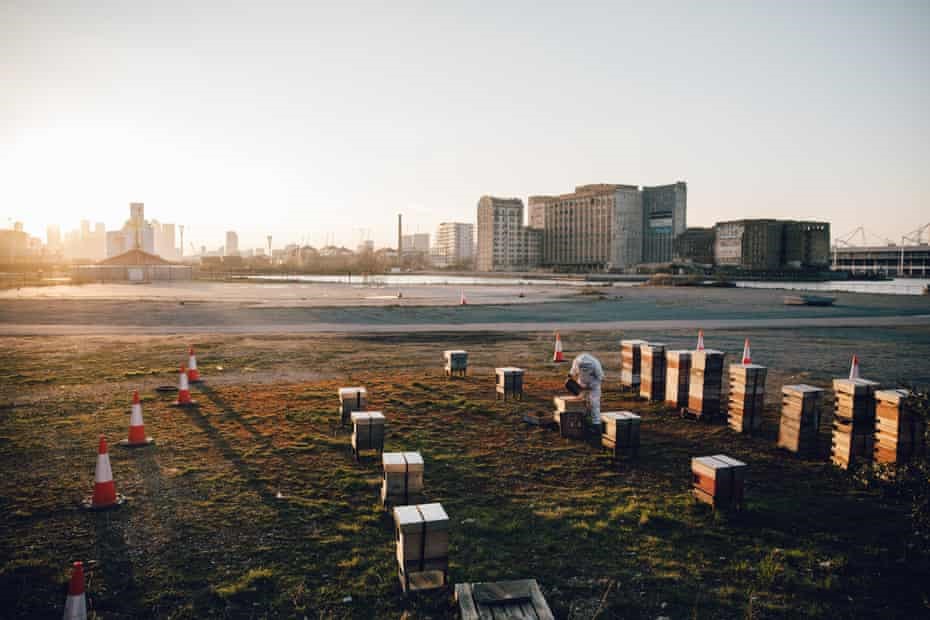‘Honeybees are voracious’: is it time to put the brakes on the boom in beekeeping?
The number of beehives in Britain’s cities is growing rapidly, putting pressure on native bees ‘that really need our help’, say scientists and experienced beekeepers
“Dinosaurs, robots and honeybees. I don’t know why, but everyone is fascinated,” says Richard Glassborow, chair of the London Beekeepers’ Association (LBKA). When it comes to beekeeping, what was once a niche hobby has flourished, especially in Britain’s cities.
But there is growing concern from scientists and experienced beekeepers that the vast numbers of honeybees, combined with a lack of pollinator-friendly spaces, could be jeopardising the health and even survival of some of about 6,000 wild pollinators across the UK. Last year, Kew Gardens’ State of the World’s Plant and Fungi report warned: “Campaigns encouraging people to save bees have resulted in an unsustainable proliferation in urban beekeeping. This approach only saves one species of bee, the honeybee, with no regard for how honeybees interact with other, native species.”
There are around 270 species of solitary bee and 25 species of bumblebee that really need our help
Prof Jane Memmott, Bristol University
“The general public know about honey; they know it comes from a bee. I think for most people, that’s it. That’s bees,” says Prof Jane Memmott at Bristol University. “Actually, there is the huge swathe of native biodiversity – around 270 species of solitary bee and 25 species of bumblebee – that really need our help.”
Alarmed at the number of beehives in London more than doubling over a 10-year period, with an estimated 7,400 hives in Greater London, the LBKA said earlier this year: “The prevailing ‘save the bees’ narrative is often based on poor, misleading or absent information about bees and their needs. It can imply that keeping honeybees will help bees, which is not necessarily the case.”
Dale Gibson of Bermondsey Street Bees surveys bees kept at a brownfield site in London Docklands. Photograph: Alexander Turner
Glassborow adds: “We have to change the narrative. People think getting honeybees is going to save bees. It isn’t. This is quite a sensitive issue for a beekeeping association to take on … [but] this is coming from the membership, it’s not something that a few people are campaigning for.”
“Honeybees are not in decline; they are probably the most numerous bee on the planet,” says Andrew Whitehouse from insect conservation charity Buglife. While the UN’s Food and Agricultural Organization reports there are more than 90m honeybee hives globally, many rarer native pollinators are in increasingly precarious positions.
“Our wild pollinators are in serious trouble. Across the board we are seeing a loss of the abundance and the diversity of pollinating insects,” adds Whitehouse. “We are seeing threatened species becoming more threatened and more rare. We are seeing some species that we know are really on the brink of extinction in the UK.
To read the complete article go to: ‘Honeybees are voracious’: is it time to put the brakes on the boom in beekeeping? | Bees | The Guardian







